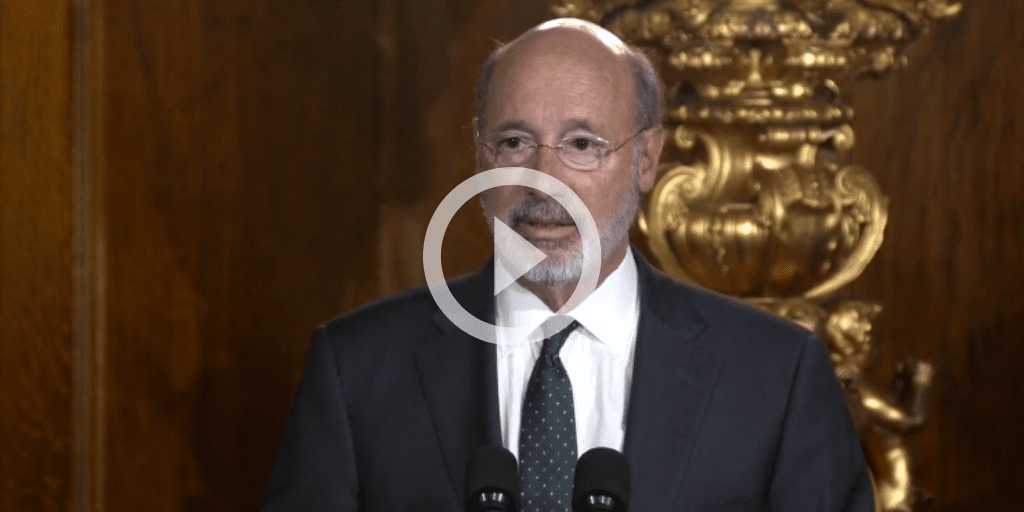Every year, the A1 Energy team looks forward to attending the annual Keystone Energy Efficiency Alliance’s (KEEA) Pennsylvania Energy Efficiency Conference (PAEE). It is Pennsylvania’s premier energy efficiency conference, which hosts leaders and prominent players for two days to discuss energy efficiency, policy direction, and developing technologies.
Without fail, we walk away from the PAEE Conference each year with new insights into the trajectory of energy efficiency measures and energy policy in Pennsylvania. This year’s conference (held at the beginning of the year) was an exceptionally pivotal conference which began with a Green Gov Council fireside chat led by Sam Robinson, Deputy Chief of Staff for Governor Wolf. The Green Gov Council is co-chaired by the State Secretaries of the Departments of General Services, Environmental Protection, and Conservation and Natural Resources.
In his fireside chat, Robinson discussed state plans that will further emission reductions by joining ten east coast and mid-Atlantic states that make up the cooperative efforts of the Regional Greenhouse Gas Initiative (RGGI). States committed to the initiative, “sell nearly all emission allowances through auctions and invest the proceeds in energy efficiency, renewable energy, and other consumer benefit programs. These programs are spurring innovation in the clean energy economy and creating green jobs in the RGGI states,” per the RGGI homepage. The bold agenda aligns with the Paris Agreement and is the first in state history to set such ambitious reductions in carbon and will support:
● renewable energy growth
● the adoption of electric vehicles
● expansion of the already significant clean energy job market
The swift move is an effort to quickly address the severe damage from extreme weather patterns and subsequent damages to Pennsylvania. Severe weather storms have already caused a total of $144 million in damage to private property and $125 million in damage to roads and infrastructure. The result of such damage will subsequently increase taxes and insurance rates. Pennsylvania has seen an overall increase in temperature of 1.8 °F, and is predicted to reach 5.4 °F by 2050.
The executive order Commonwealth Leadership in Addressing Climate Change through Electric Sector Emissions Reductions, signed on October 3rd by Governor Wolf, is the commitment by and for the Commonwealth to address climate change by promoting energy conservation, a 26% reduction of GHG emissions by 2025, and to further reduce net GHG emissions 80% by 2050, from 2005 levels.
The goals are summarized in three areas:
> Reduce overall energy consumption by 3 percent per year, and 21 percent by 2025, as compared to 2017 levels.
> Replace 25 percent of the state passenger car fleet with battery electric and plug-in electric hybrid cars by 2025.
> Procure renewable energy to offset at least 40 percent of the commonwealth’s annual electricity use.
Business support for implementing energy efficiency measures
Joining the RGGI states comes with immense growth potential for Pennsylvania businesses. The nine states that have been a part of RGGI and have taken swift action to reduce greenhouse gasses (GHG) over the last ten years have seen the following results:
● GDP increase 31% faster than the rest of the country
● Electricity costs have decreased 5.7% compared to the 8.6% increase elsewhere
● 90% faster drop in carbon emissions
The rulemaking process will be completed no later than July 31, 2020, and presented to the Pennsylvania Environmental Quality Board. The plan will include efforts for public outreach to work with the business community, energy producers, energy suppliers, organized labor, environmental groups, and others to accomplish emission goals.
For businesses operating in Pennsylvania with high energy needs like manufacturing, industrial plants, commercial buildings, healthcare facilities, hospitals, universities, educational facilities, sports facilities, senior living facilities, the measures are a welcome confirmation to address energy management and efficiency goals. The new policies will also serve as further support for businesses to contribute to the positive impact for the betterment of the Commonwealth.

Conclusion
Overall, the announcement at PAEE 2019 and the signed executive order by Governor Wolf is a monumental shift for Pennsylvania leadership on climate change. The move will drive positive outcomes for the state as a whole, improving business operations, lowering energy costs, and increasing GDP. Companies operating in Pennsylvania will subsequently become energy leaders in their respective industries as a result of energy projects and improvements that ultimately strengthen their bottom line, improve the environment, and increase the quality of life for Pennsylvania's Commonwealth.
